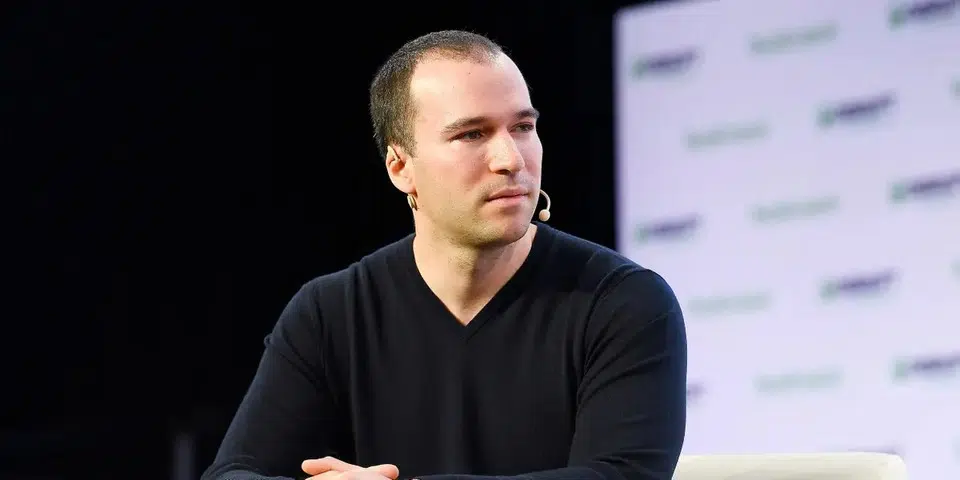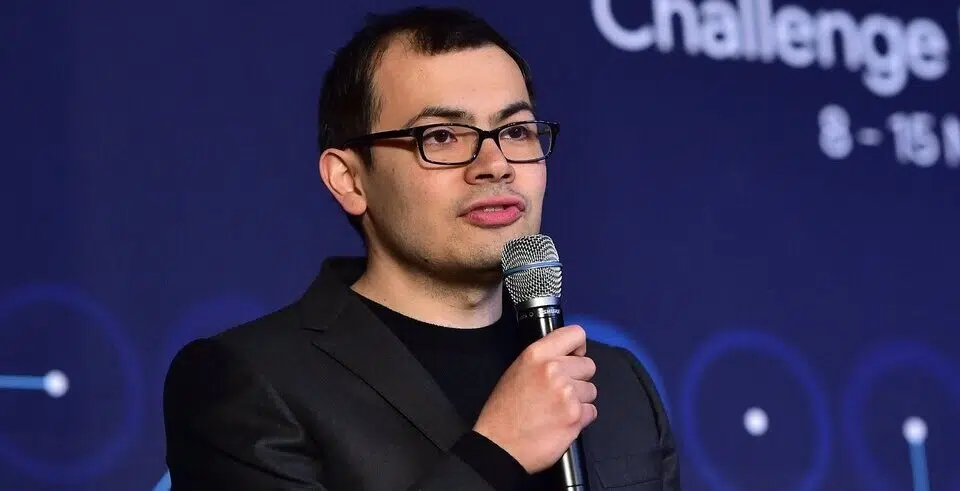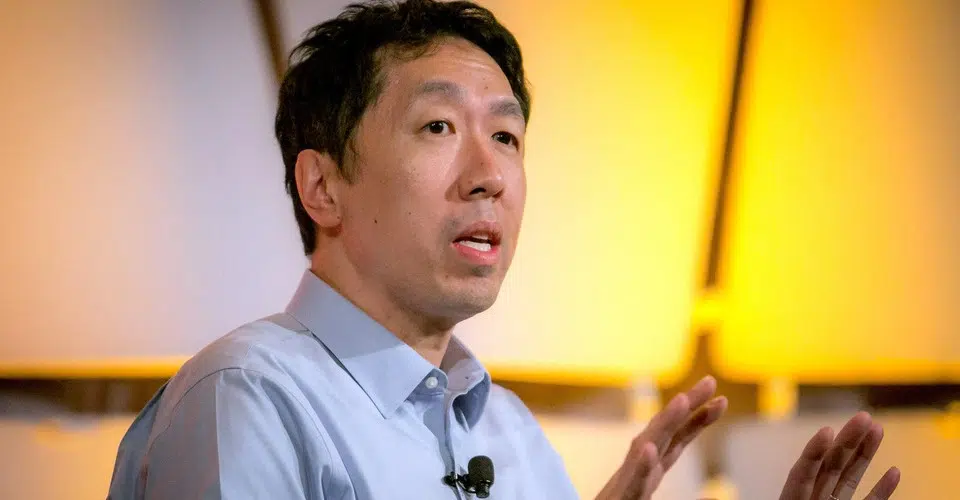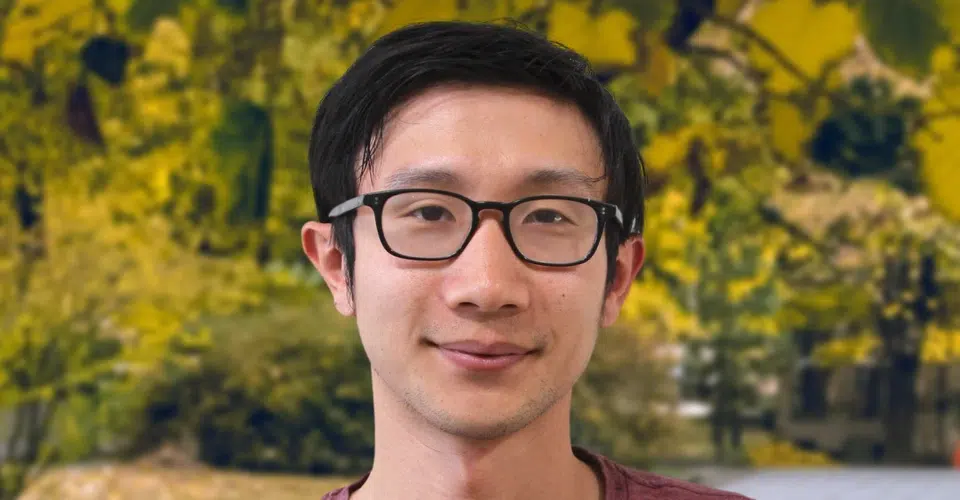Best 20 ChatGPT Experts You Should Know

Meet leading individuals who are pushing the boundaries of ChatGPT and AI development.
From open-source trailblazers and startup founders to influential educators and competition champions, these experts actively use ChatGPT (and other LLMs) in their work to innovate, educate, and inspire. Each has a unique profile — whether building tools on top of API, integrating AI into products, or helping others understand and leverage AI.
- Andrej Karpathy
- Greg Brockman
- Noam Shazeer
- Harrison Chase
- Demis Hassabis
- Toran Bruce Richards
- Brian Roemmele
- Andrew Ng
- Ethan Mollick
- Riley Goodside
- Stephen Wolfram
- Amjad Masad
- Simon Willison
- Jerry Liu
- Stella Biderman
- Shawn “swyx” Wang
- Allie K. Miller
- Filippo Mazza
- Isa Fulford
- Lilian Weng
Now, let’s delve deeper into their remarkable contributions and careers:
Andrej Karpathy

No Priors Ep. 80
Nationality: Slovak
Andrej is a prominent AI researcher and educator.
He was a founding member of OpenAI in 2015, later led Tesla’s Autopilot vision team, and returned to OpenAI in 2023 to work on improving GPT-4. Karpathy has also become one of the world’s foremost AI instructors – co-creating Stanford’s first deep learning course and popularizing AI education on YouTube.
Karpathy is an active user and shaper of ChatGPT’s evolution. He has publicly advocated for coding with AI assistance, noting that using tools like ChatGPT and GitHub Copilot boosted his programming productivity “2-3x”. As an OpenAI researcher, he directly contributed to advancing GPT-4, and as an educator, he demystifies how systems like ChatGPT work (his “Let’s build GPT from scratch” video reached millions). Karpathy’s blend of deep technical knowledge and hands-on use of ChatGPT for coding and teaching makes him an authority in this space.
- X (Twitter): @karpathy
- Github: karpathy
- Website/Blog: karpathy.ai
Greg Brockman

Nationality: American
Greg is the co-founder and president of OpenAI.
A former Stripe CTO, Brockman co-founded OpenAI in 2015 and has been a driving force behind its breakthroughs in ChatGPT and GPT-4. Notably, he’s not a hands-off executive – Brockman spends roughly 80% of his time coding and technical development. He even won a silver medal in the International Chemistry Olympiad as a teen, reflecting a penchant for problem-solving from early on.
As OpenAI’s president, Brockman led the development of ChatGPT and GPT-4, and he personally showcased GPT-4’s capabilities in the live demo (building a website from a hand-drawn sketch, solving tax questions, etc.). His hands-on approach means he actively uses and tests ChatGPT’s API in real scenarios. Brockman’s rare combination of executive leadership and deep technical engagement (writing code, guiding research) makes him a key expert. He’s helping set the direction for how ChatGPT is built and used, from steering OpenAI’s vision to refining the model with his own keyboard.
- Linkedin: Greg Brockman
- X (Twitter): @gdb
- Github: gregbrockman
- Website/Blog: gregbrockman.com
Noam Shazeer
Nationality: American
Noam is a veteran AI researcher and the co-founder/CEO of Character.AI.
At Google, Shazeer co-invented the Transformer architecture – he is literally the “T” in GPT. He also pioneered mixture-of-experts models and was a key contributor to Google’s early language models. In 2021, he left Google to start Character.AI, a chatbot platform that has gained millions of users for its personalized conversational AIs.
Shazeer’s inventions laid the groundwork for ChatGPT and all modern LLMs. The 2017 Transformer paper he co-authored revolutionized how AI models handle language, directly enabling systems like GPT-3 to be trained. Now, as an entrepreneur, he’s applying that expertise to build advanced chatbots (Character.AI reportedly serves billions of messages). Shazeer deeply understands the tech behind ChatGPT’s prowess and is actively competing in the chatbot arena, tweaking model designs and prompting techniques to push conversational AI further. His dual perspective as seminal researcher and active AI CEO makes his insight uniquely valuable.
- Linkedin: Noam Shazeer
- X (Twitter): @noamshazeer
Harrison Chase
Nationality: American
Harrison is the co-founder and CEO of LangChain, an open-source framework that has become the go-to toolkit for building applications with LLMs.
A former machine learning engineer at companies like Kensho, Chase launched LangChain in late 2022 as an open-source project. Its popularity exploded – by April 2023 it had over 12,000 GitHub stars and is now used by thousands of developers to create chatbots, AI agents, and connect ChatGPT to external data. Chase has since raised funding for LangChain and is focused on making it easier to “chain” together prompts, memory, and tools for complex AI behavior.
Harrison Chase’s work on LangChain has arguably enabled more advanced ChatGPT-based applications than any other framework. He deeply understands how to prompt LLMs to interact with databases, APIs, and perform multi-step reasoning – because LangChain provides the abstractions to do exactly that. In essence, he’s an expert at orchestrating ChatGPT to go beyond single-turn Q&A. Chase also interacts with the LangChain community daily, seeing novel use cases and prompt tricks from users, which keeps him at the cutting edge of prompt engineering trends. By creating tooling around ChatGPT’s API, he’s formalized many best practices.
- Linkedin: Harrison Chase
- X (Twitter): @hwchase17
- Github: hwchase17
Demis Hassabis

Nationality: British
Demis is the co-founder and CEO of DeepMind (now Google DeepMind), known for its groundbreaking AI research.
A former child chess prodigy and games designer, Hassabis has a track record of AI achievements – from the first superhuman Go-playing AI (AlphaGo) to cutting-edge work in deep reinforcement learning. Under his leadership, DeepMind is now developing Gemini, a large-scale LLM aiming to surpass GPT-4, and has contributed to transformer research as well. Hassabis also won the Mind Sports Olympiad Pentathlon and was a world-class chess junior, highlighting his competitive and analytical background.
While Hassabis operates a competing lab, he’s undeniably one of the top minds in AI and a thought leader on AI’s future. He actively integrates LLMs into DeepMind’s projects (like using them for robotics and strategy). Hassabis has spoken about combining reinforcement learning with ChatGPT-like models to achieve more “thinking” AI. As an AI builder, he doesn’t directly use OpenAI’s ChatGPT, but he pushes the state of the art that influences it. His perspective – having overseen both games AI breakthroughs and now large language model efforts – gives him expert insight into what ChatGPT can do and what the next generation will need.
- Linkedin: Demis Hassabis
- X (Twitter): @demishassabis
Toran Bruce Richards
Nationality: British
Toran is the creator of Auto-GPT, the viral open-source project that demonstrates an “AI agent” loop with GPT-4.
Richards, a 2020 computer science graduate, built Auto-GPT in March 2023 under the GitHub handle “Torantulino”. The tool allows ChatGPT to autonomously prompt itself to achieve goals, effectively chaining its own outputs as new inputs. Auto-GPT became an Internet sensation for showing a glimpse of how a chatbot could try to solve open-ended tasks without constant human prompts. Richards founded a company, Significant Gravitas, and continues to develop AI agents and plugins extending ChatGPT’s capabilities.
By inventing Auto-GPT, Richards pushed ChatGPT to its limits in autonomy. He discovered practical techniques for having GPT-4 perform multi-step reasoning and take actions like web browsing and file writing on its own. In doing so, he became an expert in prompt strategies for task planning, self-correction, and tool use with ChatGPT. The fact that Auto-GPT could even somewhat “think” towards a goal was a direct result of Richards’ prompt engineering. He has since explored enhancements like memory persistence and plugin integrations for these AI agents. Richards represents the cutting edge of what power-users can make ChatGPT do when you remove the usual single-turn restrictions. His project has inspired an entire class of “GPT-Agents”, underscoring his influence.
- Linkedin: Toran B. Richards
- X (Twitter): @SignificGravitas
- Github: Torantulino
Brian Roemmele
With the right prompt, you can make GPT do things that seem like magic.
Nationality: American
Brian is an independent researcher and entrepreneur who has been involved with conversational AI for decades.
He’s known for coining the term “Multiplex” and was an early adopter of voice assistant tech. After ChatGPT’s release, Roemmele became famous on Twitter for sharing elaborate “Super Prompts” – complex prompt scripts to unlock specific behaviors from ChatGPT. He even created PromptIndex and PromptExpertise.com to catalog prompting techniques. In April 2023, he was recognized as “one of the best prompt creators in the world”. Brian also hosts the Multiplex Magazine and podcast discussing AI’s impact on society.
Roemmele has positioned himself as a “prompt whisperer” pushing ChatGPT to new frontiers. He experiments with chaining multiple personas in a conversation, forcing GPT-4 into rigorous roles. His Super Prompts often span many paragraphs of instructions to achieve results others thought impossible from ChatGPT. By freely sharing these, he’s advanced the community’s knowledge. Additionally, Brian has been involved in advising businesses on integrating conversational AI and claims to have trained many new prompt engineers. His long history with AI interfaces gives him context on how far ChatGPT has come and how to creatively use it.
- Linkedin: Brian Roemmele
- X (Twitter): @BrianRoemmele
Andrew Ng

Nationality: American
Andrew is one of the world’s top AI educators and an influential entrepreneur.
He co-founded Coursera and Google Brain, led AI at Baidu, and now runs deeplearning.ai and Landing AI. Ng has taught over 5 million students through his online courses. In 2023, he partnered with OpenAI’s Isa Fulford to launch the free course “ChatGPT Prompt Engineering for Developers”, bringing prompt design skills to the masses. He’s also a Stanford adjunct professor and an advocate for democratizing AI.
Ng is pivotal in training the next generation of ChatGPT users and builders. By co-teaching a prompt engineering course with OpenAI, he distilled best practices for using ChatGPT’s API into effective techniques, thereby enabling countless developers to build LLM-powered applications. Ng himself uses ChatGPT/LLM APIs in his work at Landing AI (which focuses on applying AI in industry) and for content creation (e.g. writing parts of his newsletters with AI assistance). With his academic rigor and practical focus, Ng has become an authority on how to get the most value from ChatGPT. He’s bridging the gap between cutting-edge AI and real-world use by educating everyone, from engineers to CEOs, on prompt engineering and AI strategy.
- Linkedin: Andrew Ng
- X (Twitter): @AndrewYNg
- Website/Blog: andrewng.org
Ethan Mollick
Nationality: American
Ethan Mollick is a professor at The Wharton School (UPenn) who has become a leading voice on embracing AI in education and work.
In early 2023, Mollick made headlines by requiring his students to use ChatGPT for assignments, adopting an open policy to teach with AI rather than fight it. He writes the popular newsletter “One Useful Thing” where he shares experiments and advice on using GPT-4 in teaching, creativity, and business. Mollick also helped launch Wharton’s “AI for Business” initiative and has written books on entrepreneurship and innovation.
Few educators have explored ChatGPT’s potential as thoroughly as Mollick. By integrating ChatGPT into his curriculum, he has hands-on knowledge of how it can brainstorm, tutor, and enhance creativity for non-programmers. For example, he’s shown how students can use ChatGPT to generate startup ideas or study for exams, and he rigorously evaluates the outcomes. Mollick also runs workshops for executives on prompt engineering, stressing that using AI is now an “emerging skill”. Because he both studies and mandates the use of ChatGPT at a top institution, Mollick has developed best practices for effective prompts, academic honesty with AI, and blending human creativity with AI assistance. His pragmatic optimism and sharing of use-cases have made him a de facto coach for thousands trying to get better results from ChatGPT.
- Linkedin: Ethan Mollick
- X (Twitter): @emollick
Riley Goodside
Nationality: American
Riley Goodside is often cited as the first professional prompt engineer. He joined Scale AI in 2022 as a Staff Prompt Engineer, making a career out of mastering prompts for large models.
Goodside gained notoriety on social media by posting clever exploits of GPT-3, such as jailbreaking the model to reveal hidden instructions. In news profiles, he’s been photographed at Scale’s office with the title “AI whisperer”. After two years at Scale, Goodside recently moved to another AI venture, but remains a prominent figure in the prompt engineering community, frequently sharing tips on X (Twitter).
Goodside lives and breathes prompt crafting. He spent countless hours in “dialogues” with GPT-3/GPT-4 figuring out how to coax better results. For example, he developed techniques to get the model to admit uncertainty or to delegate math to external tools. As Scale’s prompt engineer, he worked with multiple client use cases – from getting ChatGPT to output specific JSON formats to mitigating its tendency to hallucinate. This breadth gave him a rare perspective on the model’s behavior across domains. Riley is also known for emphasizing the art of it: he has likened prompt writing to a new form of programming where the language is English and understanding the AI’s “thought” patterns is key.
- Linkedin: Riley Goodside
- X (Twitter): @goodside
Stephen Wolfram

Nationality: British
Stephen is a renowned computer scientist and the founder/CEO of Wolfram Research, known for Mathematica and Wolfram|Alpha.
A child prodigy-turned-visionary, Wolfram has decades of experience in computation. Recently, he has become a key figure in integrating symbolic computation with neural networks – in 2023 his team built the Wolfram|Alpha Plugin for ChatGPT that gives the chatbot “computational superpowers” (exact math, curated data, etc.). He authored a widely read essay “What Is ChatGPT Doing and Why Does It Work?” explaining LLMs to the public.
Wolfram brings a unique perspective of mixing rule-based computing with AI. He actively uses ChatGPT with his Wolfram plugin to solve complex queries that pure GPT would normally struggle with (like calculus problems or live data queries). By bridging ChatGPT with Wolfram|Alpha, he has expanded what the model can do, and in doing so, he’s become an expert on its strengths and weaknesses in factual domains. He frequently experiments with prompt designs that invoke computation and has publicly shared detailed analyses of ChatGPT’s capabilities. As an AI builder, Wolfram is ensuring that ChatGPT and similar bots can become more reliable by hooking into external logic. His thought leadership and practical integrations make him a top expert at the intersection of generative AI and traditional computing.
- Linkedin: Stephen Wolfram
- X (Twitter): @stephen_wolfram
- Website/Blog: stephenwolfram.com
Amjad Masad
Nationality: Jordanian
Amjad is the CEO and co-founder of Replit, an online coding platform.
A self-taught programmer, Masad created Replit to make coding accessible from any browser. In recent years he has infused Replit with AI: the platform’s GPT-4-powered coding assistant, Ghostwriter, can autocomplete code, answer questions, and even debug programs. Under Masad, Replit has grown to 20M+ developers, and he’s positioned the company at the forefront of AI-enhanced software development.
Masad is a leading advocate for using ChatGPT/Codex to boost programming productivity. He believes AI coding assistants will enable “one-person, billion-dollar companies” by empowering solo developers. He actively uses ChatGPT-derived tools in his daily workflow and pushes his team to improve Ghostwriter’s capabilities in response to ChatGPT and GitHub Copilot. Notably, Masad’s Replit was first to market with a ChatGPT-like interactive coding chatbot (Ghostwriter Chat) that can not only suggest code but also execute and debug it in real-time. This kind of tight integration of ChatGPT into a dev environment reflects his expertise. Masad’s vision and hands-on experience using AI to write and fix code make him an expert voice on how ChatGPT is transforming software creation.
- Linkedin: Amjad Masad
- X (Twitter): @amasad
- Website/Blog: amasad.me
Simon Willison
Nationality: British
Simon is an open-source developer and blogger known for co-creating Django and for his web development projects.
He now focuses on Datasette, an open-source tool for data publishing, and has become a notable community voice on prompt engineering and ChatGPT. Willison’s personal blog has dozens of insightful experiments with ChatGPT, from getting it to explain code, to jailbreaking its prompts. He has been interviewed as an independent AI researcher who deeply “studied AI prompt engineering.”
Willison is a master at practical prompt engineering. As an independent developer, he constantly finds creative ways to use ChatGPT in his work – for instance, generating SQL queries or documentation via clever prompts. He shares these findings in real-time on his blog and Twitter, benefiting the community. Simon was among the first to document how to extract ChatGPT’s hidden system instructions and how to reliably format its outputs. He even built a browser plugin to integrate ChatGPT into his data analysis workflows. Because he approaches ChatGPT as a power user and tool-builder (but outside of big corporate constraints), Willison is able to push its limits and openly publish the results. His grassroots experimentation and clear writing have made many consider him an authority on getting the best out of ChatGPT.
- Linkedin: Simon Willison
- X (Twitter): @simonw
- Github: simonw
- Website/Blog: simonwillison.net
Jerry Liu

Nationality: American
Jerry is the co-founder and CEO of LlamaIndex (formerly GPT Index), an open-source framework for connecting language models to external knowledge sources.
A Princeton-trained computer scientist, Liu worked at Uber AI and Robust Intelligence before starting LlamaIndex in 2022. LlamaIndex provides data connectors, indices, and query engines that allow ChatGPT and other LLMs to access private or large-scale data (documents, SQL, APIs) efficiently. The project grew from under 700 stars in early Jan 2023 to over 12,000 by April 2023, reflecting widespread use in building QA bots and assistants on private data.
Liu’s focus is on one of the hardest problems with ChatGPT – getting it to use knowledge outside its training data reliably. By inventing LlamaIndex, he essentially created a method for prompt-driven retrieval: LLMs first consult an index of relevant data and then answer with that data’s help. This is now a standard approach. Liu’s daily work involves tuning prompts for generation of search queries, summaries, and follow-up questions to maximize accuracy. He has deep insight into mitigating ChatGPT’s hallucinations by grounding it with real info. Additionally, as an open-source maintainer, Jerry engages with a community of developers debugging and extending ChatGPT’s capabilities via LlamaIndex, giving him a breadth of practical knowledge. In summary, Liu is a top expert on making ChatGPT actually useful on your own data, which is crucial for many real-world applications.
- Linkedin: Jerry Liu
- X (Twitter): @jerryjliu0
- Github: jerryjliu
Stella Biderman
Nationality: American
Stella is an AI researcher and the Executive Director of EleutherAI, a nonprofit open-source AI research lab.
She leads a team of researchers who have collaboratively created large language models such as GPT-Neo, GPT-J, and NeoX. EleutherAI was founded in 2020 with the mission to open-source cutting-edge LLMs that rival private models. Under Biderman’s guidance, EleutherAI released the world’s first publicly available GPT-3-style model and continued to release ever-larger models, each the largest open model at the time. She is also a researcher at Hugging Face and co-authored papers on model evaluation and bias.
Biderman is a champion of open ChatGPT-like models. By literally building them from scratch, she has expertise in the architecture and training process behind chatbots. She is deeply familiar with the internals of how models like ChatGPT are tuned, having overseen EleutherAI’s training of 20B+ parameter models and their public release for others to test. This means she understands what ChatGPT’s strengths and weaknesses are at a fundamental level. Additionally, EleutherAI’s models have been used to create open-source chatbots, giving Biderman hands-on experience in prompt engineering for non-OpenAI systems. Her commitment to transparency in AI and her technical contributions make her an authoritative voice on large language models. She frequently advises on how open models compare to ChatGPT and how we can safely advance them.
- Linkedin: Stella Biderman
- X (Twitter): @BlancheMinerva
Shawn “swyx” Wang
Nationality: Singaporean
Shawn is an AI engineer, blogger, and founder who has become a leading advocate for the emerging role of the “AI Engineer.”
Formerly a developer at Amazon and Netlify, and VC at Temporal, Swyx shifted focus entirely to AI in 2023. He co-hosts the Latent Space podcast and organizes the AI Engineers community. In his talks and writing, Shawn argues that an AI Engineer is a new breed of developer who integrates AI models (like ChatGPT) into products – not necessarily training models, but applying them. He’s the founder of Smol AI, curates an AI newsletter, and was a key speaker at the 2023 AI Engineer Summit.
Swyx has his finger on the pulse of how ChatGPT and LLMs are actually used by developers. He popularized the term “Software 3.0” to describe programming with natural language prompts instead of code. In practice, he has built numerous demos combining ChatGPT with developer tools, and he shares lessons on prompt tactics, eval methods, and system design. Shawn’s influence also comes from synthesizing knowledge across the field – through his podcast he’s interviewed many creators of LLM tech, extracting their best practices. He personally prototypes AI features, like using GPT-4 to generate entire UI components. By bridging the gap between research and application, and championing the community of engineers who use ChatGPT daily, Swyx is a key expert driving innovation.
- Linkedin: Shawn Wang
- X (Twitter): @swyx
- Github: swyxio
- Website/Blog: swyx.io
Allie K. Miller

Nationality: American
Allie is a globally recognized AI influencer, advisor, and investor. She was the youngest-ever woman to build an AI product at IBM Watson and later served as Global Head of Machine Learning Business Development for Startups at AWS, where she helped Fortune 500 companies and startups implement AI.
With over 1 million followers, Allie has been a LinkedIn Top Voice in AI from 2019–2023 and frequently appears as a keynote speaker simplifying AI for business audiences. She now runs her own AI strategy advising firm and creates educational content to get companies “AI-First.”
Allie operates at the intersection of AI technology and business adoption. She spends much of her time teaching non-technical professionals how to use tools like ChatGPT to drive productivity. For example, she publishes guides on using ChatGPT for tasks like marketing copy, customer support, and brainstorming, thus influencing how countless business users engage with the tool. With her background at AWS and IBM, she’s also intimately aware of the enterprise challenges of deploying AI and often advises on choosing between building custom models vs. using APIs like OpenAI’s. Miller’s huge following indicates that many look to her for practical, hype-free advice on AI. Whether it’s her “AI Use Case Cheat Sheets” or free courses, she’s equipping a broad community to skill up in ChatGPT. Being a top voice on AI business trends, Allie often highlights noteworthy advancements and best practices, effectively curating the fast-moving ChatGPT ecosystem for others.
- Linkedin: Allie K. Miller
- X (Twitter): @alliekmiller
- Website/Blog: alliekmiller.com
Filippo Mazza
Nationality: Italian
Filippo is an AI and data-science leader who, as he puts it, “brings value to business making the data speak” through analytics, machine learning and rapid prototyping.
In his LinkedIn article “ChatGPT: try avoid zero” he shares prompt-engineering tips for preventing blank or low-value responses, illustrating his practical focus on large-language-model behavior. He further tests LLM limits by asking GPT-4 to generate a complete personal-finance simulator in Python, then publishing the auto-generated code (with bug-hunting notes) on GitHub.
Mazza also created a custom GPT—“DS4P – Slow Data Science as a Pro”—that coaches analysts on debugging and production-ready coding, underscoring his commitment to hands-on ChatGPT applications in real workflows
- Linkedin: Filippo Mazza
- Github: filippo-mazza
Isa Fulford
Nationality: American
Isa is a researcher and engineer at OpenAI who has played a significant role in bridging OpenAI’s tech to the developer community.
She co-created the popular “ChatGPT Prompt Engineering for Developers” course with Andrew Ng in 2023, effectively becoming an instructor to hundreds of thousands on how to use ChatGPT’s API. At OpenAI, Isa works on post-training alignment and has helped build features like the ChatGPT Code Interpreter and DeepResearch. She is often featured in OpenAI’s developer forums and videos explaining new capabilities.
Inside OpenAI, Fulford is a go-to person for making ChatGPT useful and safe for developers. She has deep knowledge of how the model responds to different prompt techniques thanks to her research on alignment. Isa helped design the API examples and best practices that thousands of devs now follow. For instance, she likely crafted many of the prompt templates in OpenAI’s Cookbook and documentation. Her work on the DeepResearch agent shows she’s on the forefront of extending ChatGPT’s capabilities. Moreover, by teaching the Coursera course, she encountered a wide array of questions and misunderstandings from newcomers – and learned how to address them effectively. This makes her adept at explaining ChatGPT’s “mental model” and how to coerce the best output.
- Linkedin: Isabella Fulford
- X (Twitter): @isafulf
Lilian Weng
Nationality: Chinese
Lilian is an AI researcher known for clear, technical writing on how large language models behave in practice. She has published widely read deep-dives on topics like prompt engineering and transformers on her blog “Lil’Log.”
Weng’s work maps closely to how strong ChatGPT users operate: careful prompting, understanding failure modes, and designing workflows that reduce hallucinations and improve consistency. Her posts are frequently referenced by engineers who build LLM features, because they translate research ideas into concrete patterns that can be tested with ChatGPT-class models.
- Linkedin: Lilian Weng
- X (Twitter): @lilianweng
- Github: lilianweng
- Website/Blog: lilianweng.github.io
Wrap Up
These experts represent exceptional talent, making them extremely challenging to headhunt. However, there are thousands of other highly skilled IT professionals available to hire with our help. Contact us, and we will be happy to discuss your hiring needs.
Note: We’ve dedicated significant time and effort to creating and verifying this curated list of top talent. However, if you believe a correction or addition is needed, feel free to reach out. We’ll gladly review and update the page.
Frequently Asked Questions
Yes, ChatGPT is widely used for customer support, content automation, code assistance, and other AI-driven applications. Its relevance continues to grow as businesses integrate conversational AI into their workflows.
Rates vary depending on experience and project scope. Freelancers often charge between $50 and $150 per hour, while full-time specialists in the US typically earn $90,000 to $140,000 annually.
ChatGPT consultants help design, train, and integrate AI models into business systems. They may build chatbots, automate content pipelines, fine-tune models for industry-specific use cases, and ensure compliance with data and security requirements.
There is growing availability of developers with ChatGPT expertise, but demand is high. Specialists with experience in prompt engineering, API integration, and AI system deployment can be competitive to hire.
Companies across technology, finance, education, and healthcare use ChatGPT. Notable adopters include Microsoft, Duolingo, Shopify, and various startups building AI-powered products.
